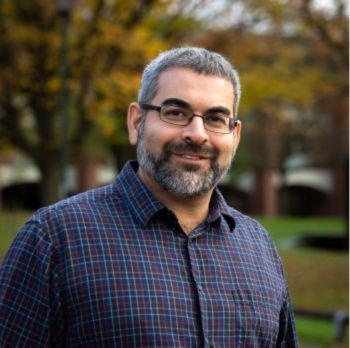News
See our news stories for culture, equality and inclusion at Sussex.
The warm glow of kindness: Universities can play an active role in staff and student volunteering
Posted on behalf of: Professor Robin Banerjee, Pro-Vice-Chancellor (Global and Civic Engagement)
Last updated: Friday, 7 June 2024

Read this blog from Professor Robin Banerjee, Pro-Vice-Chancellor (Global and Civic Engagement), published on Friday 7 June by the higher education think tank Higher Education Policy Institute (HEPI):
The warm glow of kindness: Universities can play an active role in staff and student volunteering
Universities enrich people’s lives through the creation and sharing of knowledge in education and research, broadening our horizons, and bringing material benefits to our local and global economies. But there is another huge and often overlooked benefit they bring to society.
In every town and city with a university or college, you are likely to find students – and often members of university staff too – giving their time to help good causes, with impacts being felt both locally and further afield.
From taking part in beach clean-ups to monitoring endangered species, from tutoring refugees to supporting vulnerable children and young people, university staff and students are making impactful contributions to a wide range of organisations, groups and individuals.
In fact, at the University of Sussex, we know our presence is often made visible to our local community through the volunteering carried out by our students and staff. More than half the respondents of a recent survey of local residents said that encountering student volunteers is one of the ways they learned about our university.
This week (3-9 June) is Volunteers Week, an annual celebration that highlights and raises awareness about what volunteering brings to those who receive the help – and also to those who give it.
As a psychologist – and co-founder of the Sussex Centre for Research on Kindness at the University of Sussex – I have long been fascinated by the nature of kindness and its impacts on people and communities. In our centre’s recent partnership with the BBC for its Anatomy of Kindness series, we were able to show – from the world’s largest-ever study dedicated to this topic – that acts of kindness are positively associated with wellbeing not just for those on the receiving end but also for those who are being kind. In fact, neuroscientists at Sussex have revealed that altruistic generosity activates several areas of our brains associated with reward, creating “a warm glow” of kindness.
Numerous studies have shown that helping others gives people a sense of purpose and alleviates loneliness as they strengthen ties to the community and broaden their support network. Volunteering has also been found to be significantly associated with better physical and mental wellbeing.
From a practical perspective, students often discover that volunteering can help them build experience and skills that they can add to their CV. These include learning time management, organisation and planning, teamwork and interpersonal skills that can help to boost their employability, above and beyond their specialist academic knowledge.
Voluntarily supporting others – including other students – is often a big part of university life, from taking on roles within a students’ union, to running student societies (at Sussex we have more than 200!), to supporting freshers through ‘buddy schemes’ and becoming student representatives on numerous academic and student support committees.
Of course, volunteering and community engagement need to be placed in the context of wider societal changes. We know that as cost-of-living pressures have continued to escalate, it can often be difficult for people to devote time to unpaid work for causes they care about. Fortunately, universities are able to design and implement diverse routes for students to make positive differences in the local community, such as through financially supported internships and placements. At the University of Sussex, we fund around 600 student interns and consultants who are then able to give their time to external partners, including local charities and community organisations.
Whilst the financial support is greatly appreciated in those cases, it is often the invaluable experience of working within charities that later leads students to pursue careers in the voluntary sector – or to continue volunteering long after their internships have ended.
As well as supporting students in these ways, universities have a role to play in facilitating staff community volunteering too. Employees who are encouraged by their employers to volunteer have been reported to also become more motivated and have a better sense of wellbeing.
At Sussex, our current volunteering policy provides its staff with the opportunity to take two days of paid leave per year for voluntary activities in the regional community, particularly in alignment with the UN’s Sustainable Development Goals.
This relates to our institutional commitment to being among the world’s most sustainable universities, recognised most recently in the QS Sustainability rankings, where we were identified within the top 30 worldwide. Sussex staff can volunteer at a range of charity partners that have sustainability at their core, or can arrange their own volunteering.
I have been struck by the very wide range of ways in which staff volunteers have reported connecting with their local environment and community, whether that’s through sharing their particular expertise in the sciences, social sciences, or arts and humanities, or through giving their time and energy to the many jobs that, even if small in scale, are crucial for helping charities make a difference to people and to the planet.
It’s obvious that giving time to volunteering can have huge benefits for those receiving help. But research suggests it’s important for everyone involved. National Volunteers’ Week offers the higher education sector a reminder of how simple but powerful it can be for universities to celebrate and facilitate the positive impacts of staff and student volunteering for us all.
Professor Robin Banerjee
Pro-Vice-Chancellor (Global and Civic Engagement)